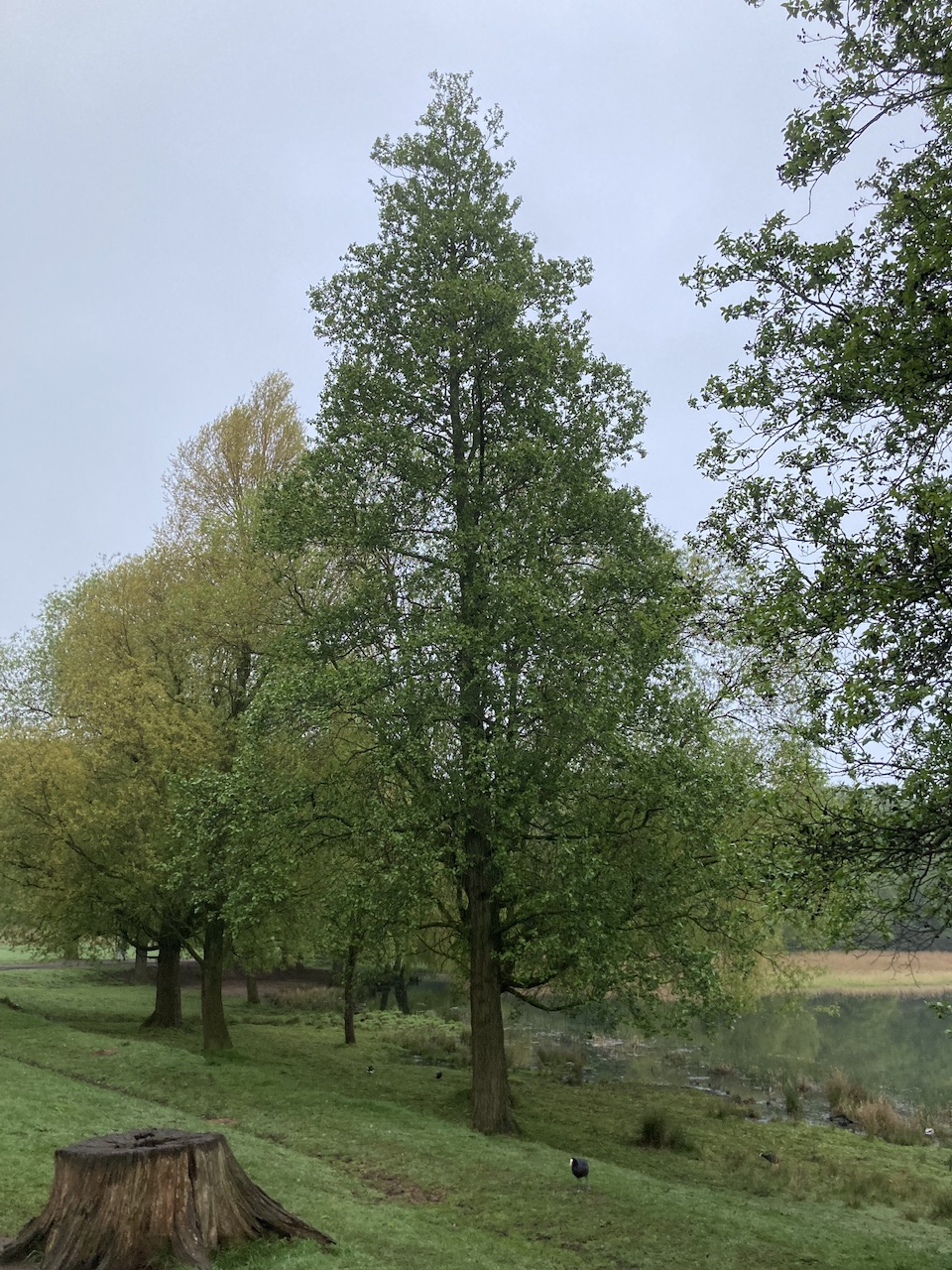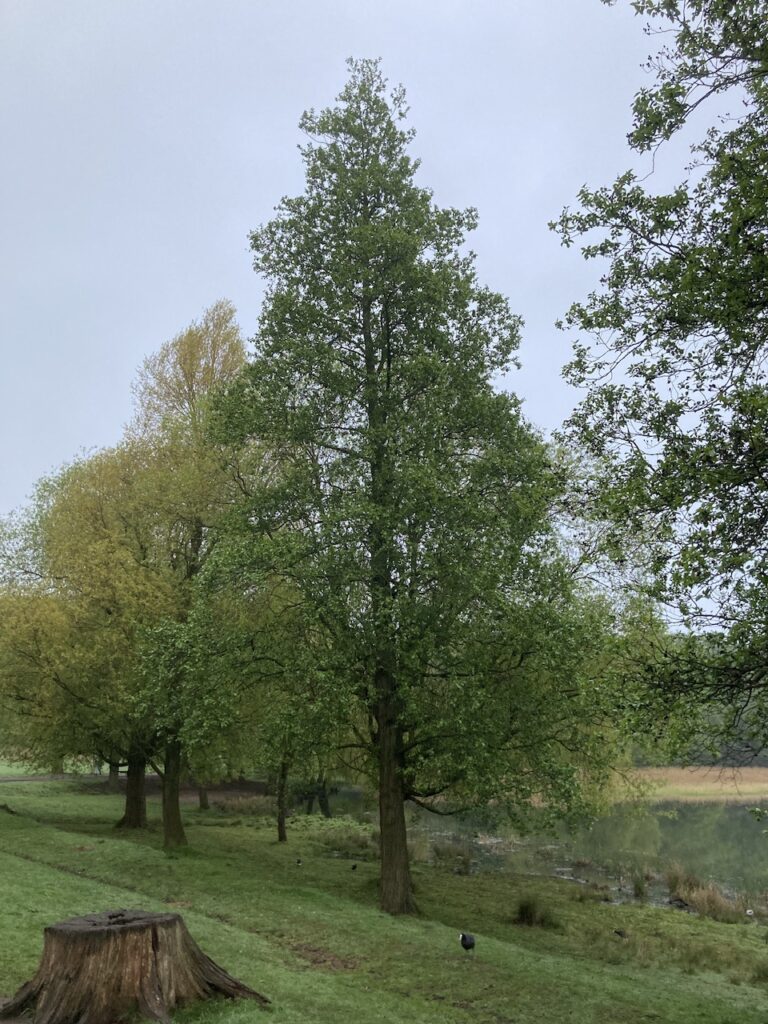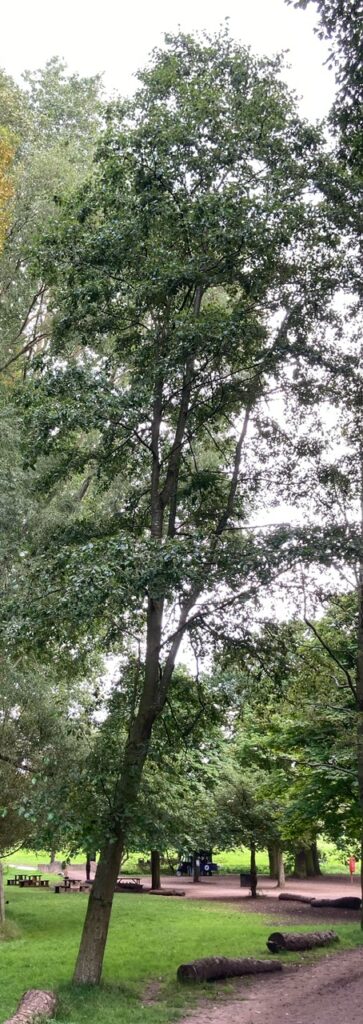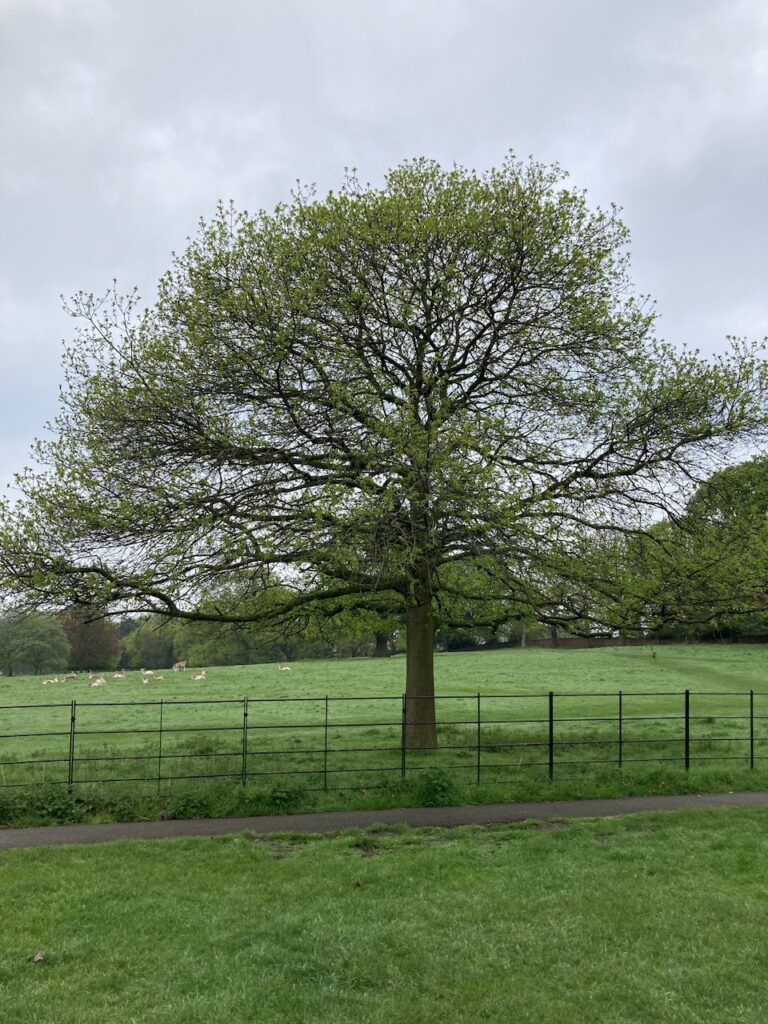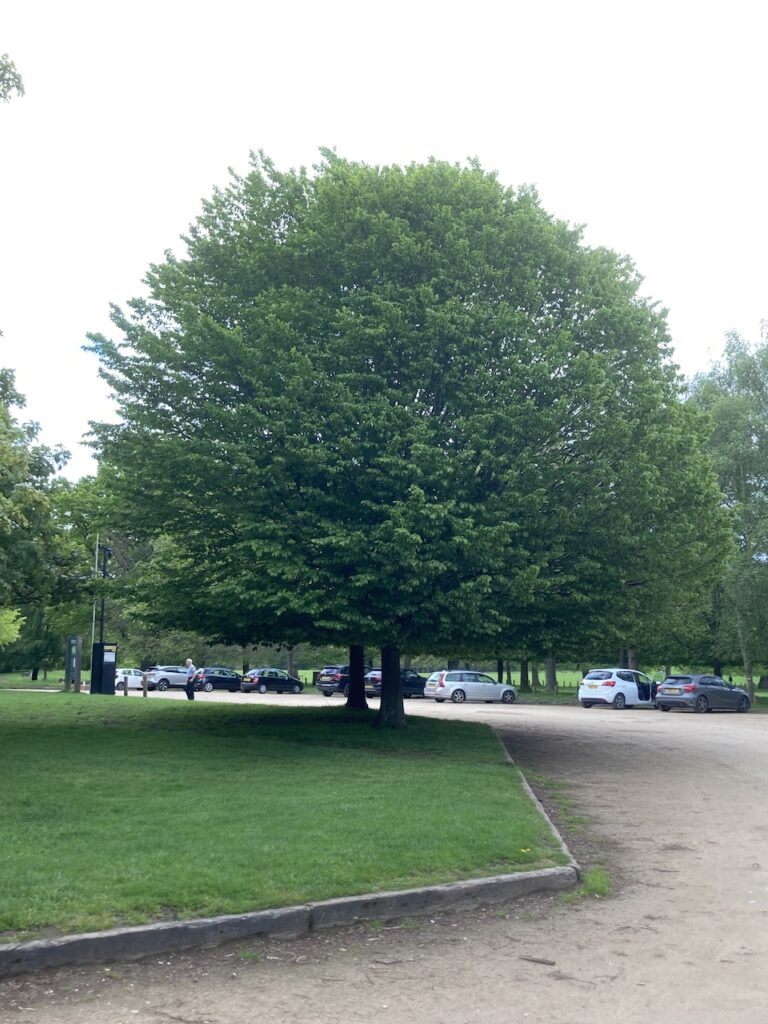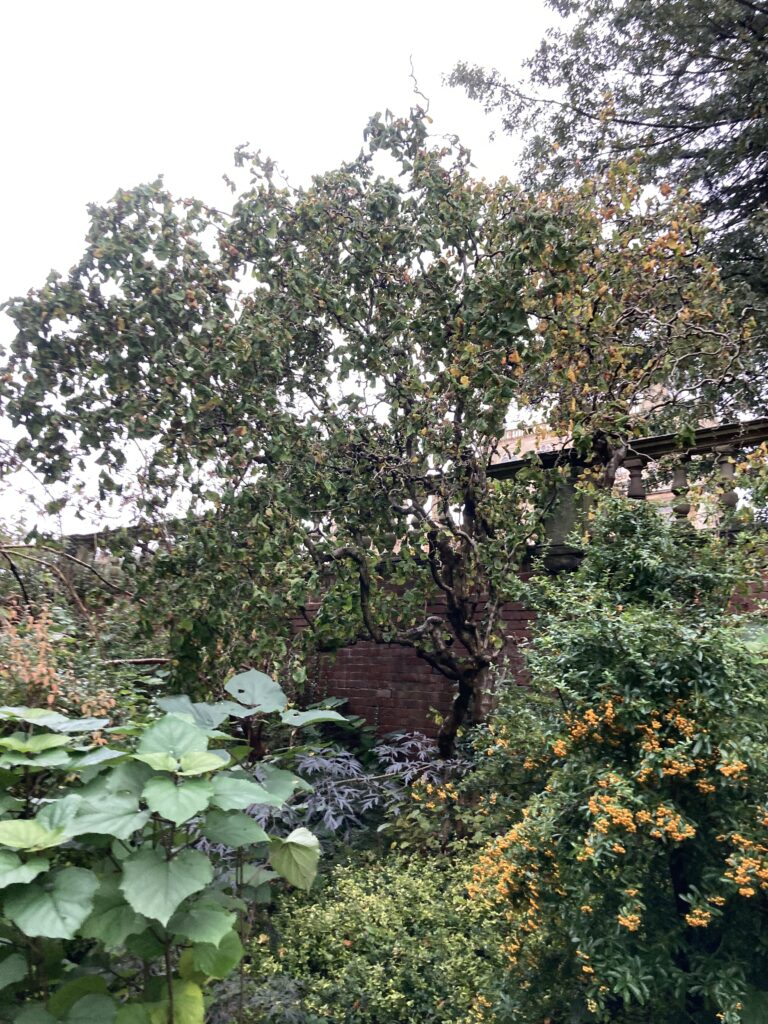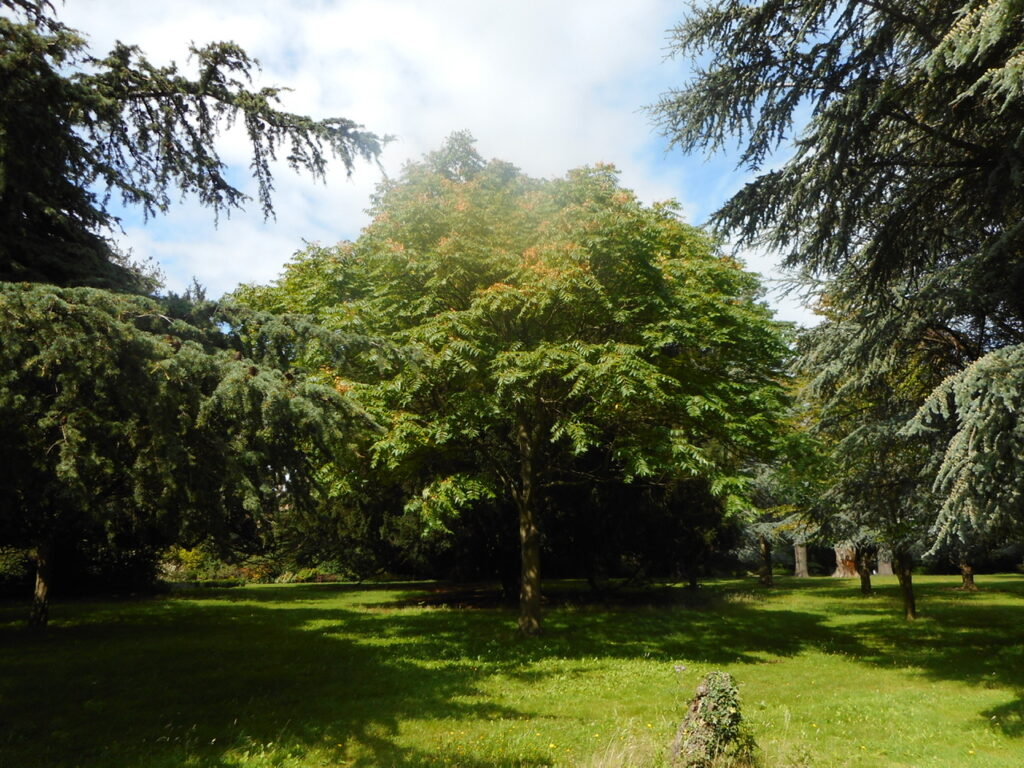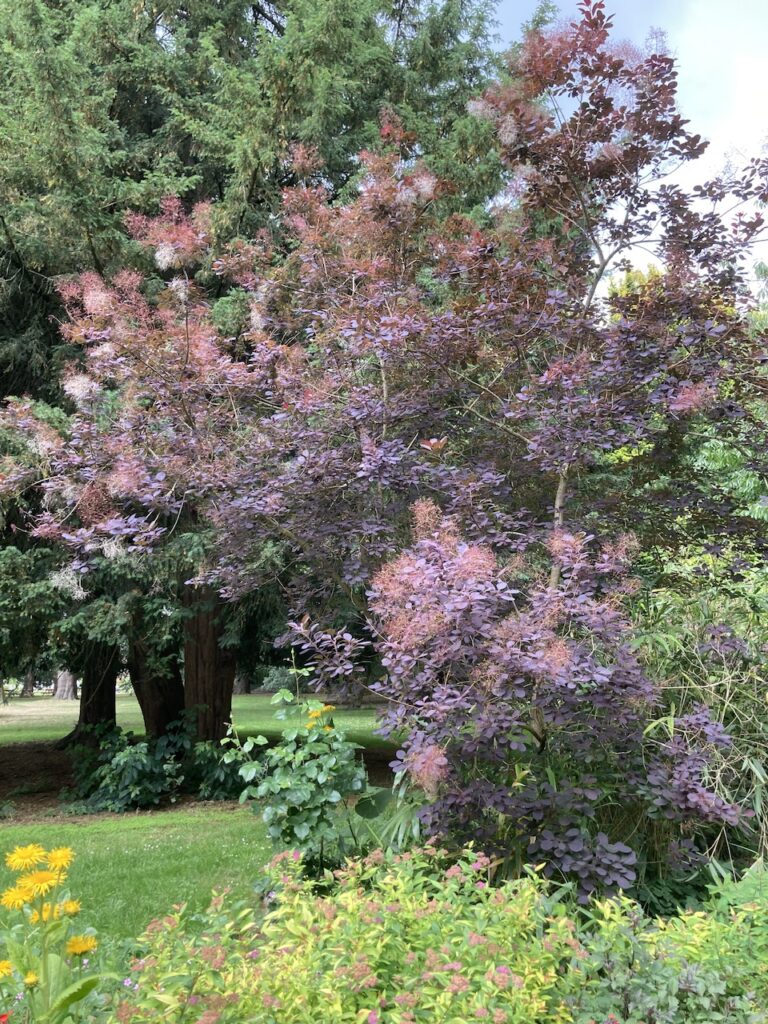All trees on the page are members of the high-level Asterids group of flowering plants.
Birch and Alder trees are part of the Fagales sub-order, in the Betulaceae family. Other members of the Fagales order, in a different family, are the Beeches and Oaks.
Birch / Alder Family
Birches are very popular with wildlife, providing food and shelter for small birds like Goldfinches; the leaves provide moth and butterfly caterpillars with food, and over 300 species of invertebrates are associated with the trees.
Silver Birch

Betula pendula.
Silver birch trees have slender trunks with white bark that peels off in thin layers, revealing the smooth, silvery-grey bark underneath. Mature trees have a diamond pattern visible in the bark.
It has deeply lobed, silvery-green leaves and pairs of winged seeds called samaras.
Produces strong white wood, used for bobbins!
See Tree 3 in the Mini Arboretum.
Erman’s Birch

Betula ermanii.
The bark of Erman’s birch is a distinctive chalk-white colour and peels off in papery layers as the tree matures. The leaves are triangular, with pointed tips and serrated edges, and turn a bright yellow colour in the autumn before dropping.
Downy Birch

Betula pubescens.
Downy birch or European white birch is a deciduous tree native to northern Europe and northern Asia.
It is a slender tree with a light canopy and drooping branches.
You can tell this species apart from Silver Birch by its leaf shape, which is also hairy underneath. The bark is less flaky, with clear horizontal lines.
See Tree 4 in the Mini Arboretum.
Common Alder

Alnus glutinosa.
Deciduous tree with a conical crown, greyish-brown bark, and rounded leaves with toothed margins. Produces small cones that disintegrate to release small winged seeds.
Turkish Hazel

Corylus colurna.
The leaves of the Turkish Hazel are oval, with serrated edges, and turn a beautiful yellow or orange in the autumn. The tree produces small, yellowish-brown catkins in the late winter or early spring, followed by edible nuts enclosed in a husk.
The tree shown is near the entrance to the Walled Garden from the park, once recorded as the largest in the country.
See also Tree 29 in the Mini Arboretum.
Common Hazel
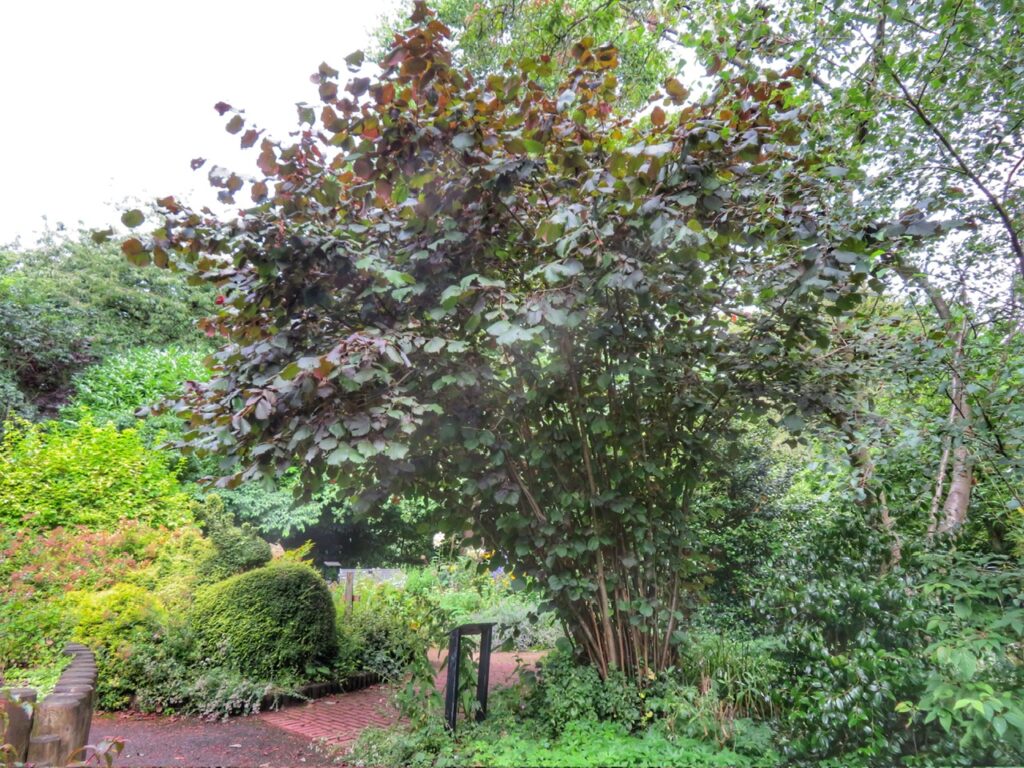
Corylus avellana.
A hazel tree is a deciduous tree that can grow up to 15 meters tall. It has a slender trunk and spreading branches.
The leaves are oval-shaped and have serrated edges.
The catkins elongate in late winter to release wind-blown pollen, providing a vital early food source for bees and marking the very first stirrings of spring.
The fruit is a hazelnut, which is a brown, oval-shaped nut.
There are several on the edge of Thompson’s Wood and the Parkside field.
Ash Family
Common Ash
Fraxinus excelsior.
Deciduous tree with a tall, straight trunk and a spreading crown. The leaves are compound, with 5-11 leaflets, and turn yellow in the autumn. The tree produces winged seeds called keys; it has distinctive black buds in winter.
The wood is flexible, historically good for making wheels. It has a low water content, so it burns easily.
Unfortunately, the Common Ash is currently facing a significant threat from a chronic fungal disease known as Ash Dieback. There are no known cases currently in the park (2025).
See Tree 24 in the Mini Arboretum.
Claret Ash
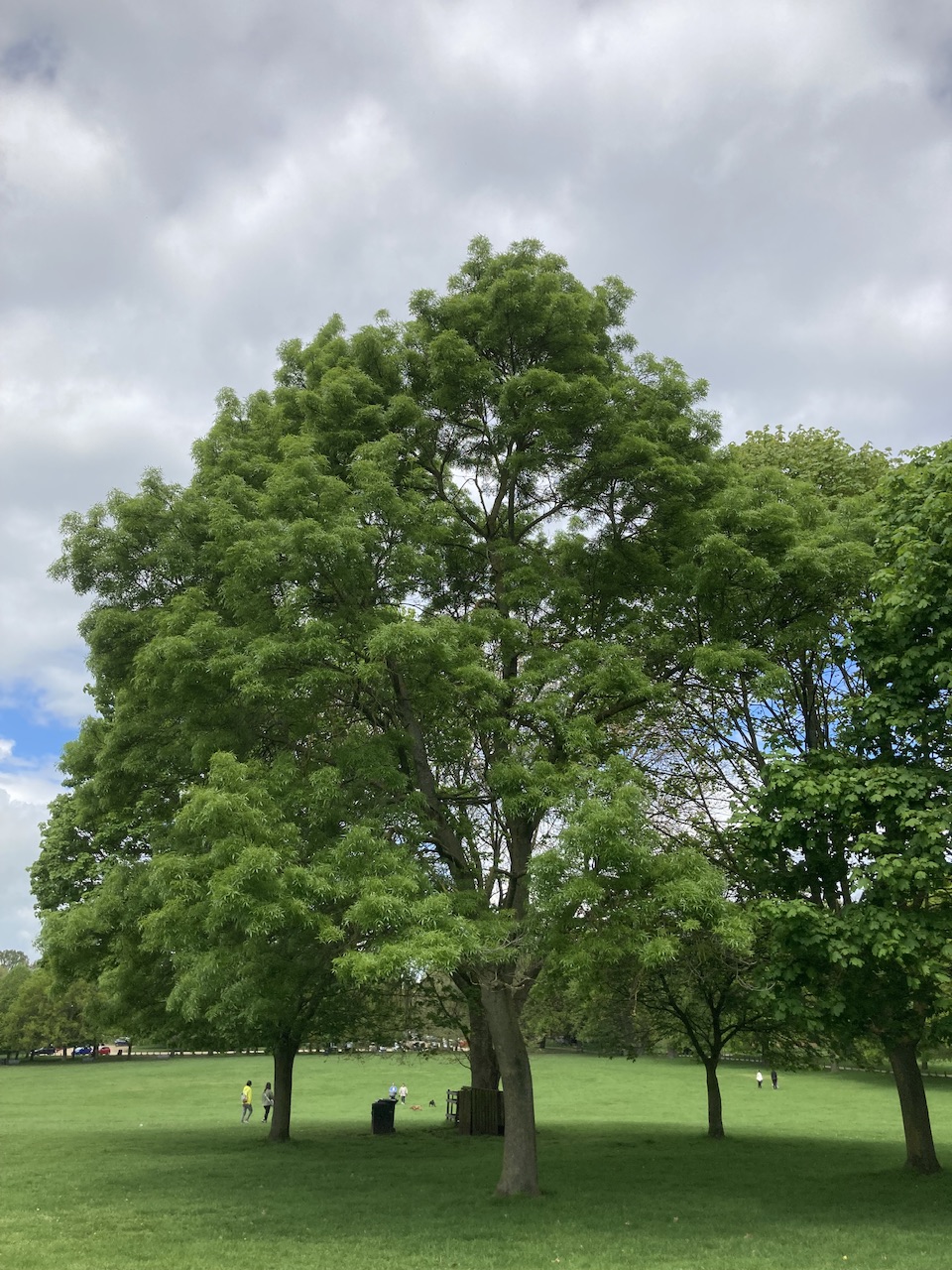
Fraxinus augustifolia ‘Raywood’.
Also known as Raywood Ash, it is a subspecies (ssp) of the Narrow-leaved Ash (Fraxinus augustifolia).
Similar to the Common Ash, but with leaves that turn a deep claret colour in autumn.
Single Leaf Ash

Fraxinus excelsior f. diversifolia.
As the name suggests, single-leaf ash has only one leaflet per leaf, which is oval or elliptical with a serrated margin. The leaves are dark green and can grow up to 6 inches long.
Other
Holly



Ilex aquifolium.
The leaves of holly trees are evergreen, typically sharp and spiny, with a dark green colour that persists throughout the year. They have red berries.
The varieties shown are in the Formal Garden, towards the lake. On the left is the spineless Pyramid Holly (‘Pyramidalis’). The other two are Golden Hollies (Ilex aquifolium f. aureomarginata), probably the varieties “Watereriana” and “Golden Queen”.
Dove Tree
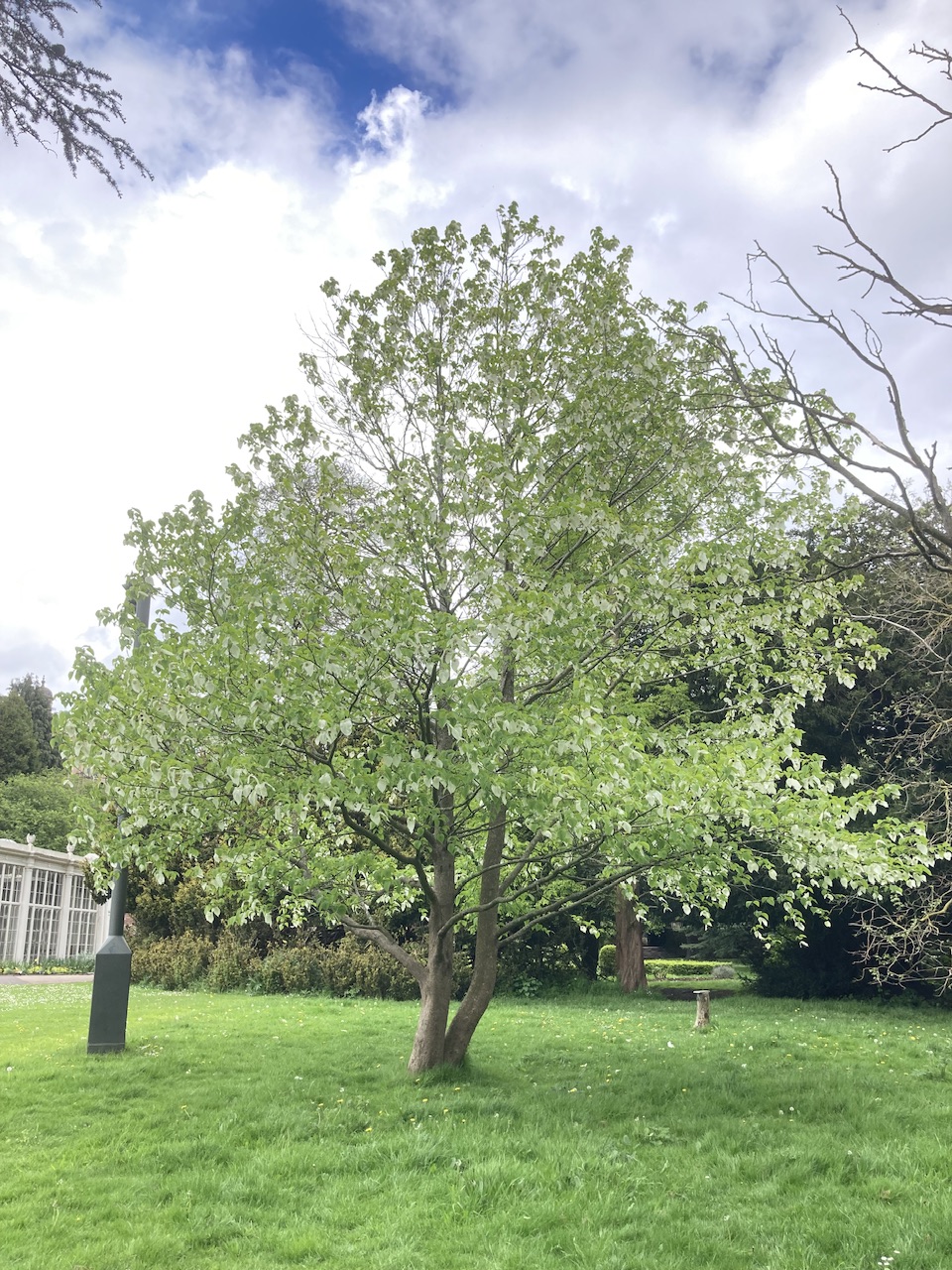
Davidia involucrata.
Also known as the Handkerchief Tree.
It has toothed, alternate, ovate-cordate leaves.
Fossil records of Dove trees extend back to the age of the dinosaurs.
Specimen at the back of the hall planted circa 1970.
Indian Bean Tree

Catalpa bignonioides.
Also known as the Golden Bean Tree.
The leaves of the Indian Bean Tree are yellow. The tree also produces large clusters of showy white flowers with purple and yellow markings that bloom in late spring or early summer. The fruit of the tree is a long, narrow bean pod that can reach up to 2 feet in length.
Photographs used in the Tree Galleries were taken in Wollaton Park and are reproduced with the original artist’s permission.
Copyright © for each picture remains with the original artist, who is duly acknowledged for their contribution.
Contributors include Colin Robbins, Wendy Martin, and Chris Golightly.
Tree descriptions were generated with the assistance of Google Bard.

